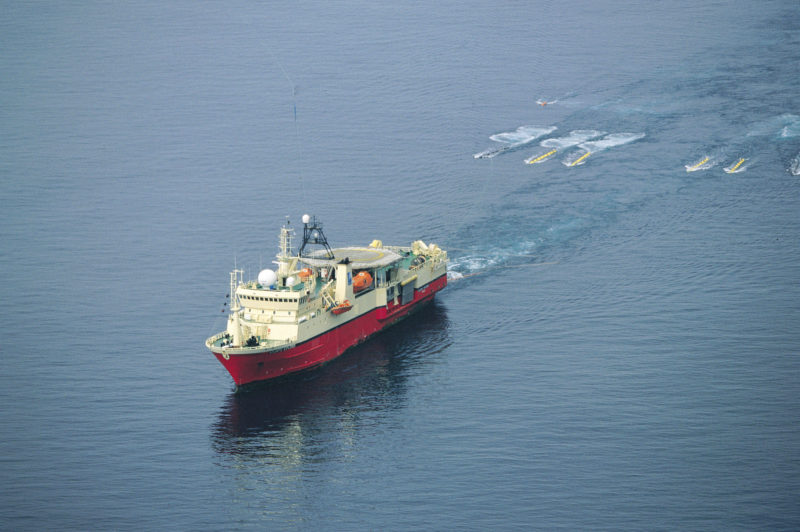Already under intense political pressure in a presidential election year, the Trump administration’s goal of opening more offshore areas to oil drilling will take a major legal hit as permits for Atlantic exploratory seismic surveys expire Nov. 30.
In a federal court conference Oct. 1, lawyers for the federal government and offshore exploration companies acknowledged that key permits to allow seismic surveys – high intensity acoustic probes of the seafloor to detect potential oil resources – will expire that date without a mechanism to renew them.
Called incidental harassment authorizations, or IHAs, the permits are a requirement under federal law protecting marine mammals. Environmental groups, allied with fishing, coastal and tourism industries in the Carolinas and Georgia that oppose offshore drilling, have fought the permits in federal court for years.
The highly endangered northern right whales, now numbering only around 400 animals, are at special risk, those critics say. The whales use seasonal feeding and calving grounds off the Southeast coast and are already at high risk from ship strikes and fishing gear entanglements in their range from Canada to Florida.
In a joint statement environmental groups said the court conference yielded agreement that seeking new IHA permits “would move the lengthy process back to square one,” with the immediate effect that survey companies will not conduct any cruises in the near future.
“This is a huge victory not just for us but for every coastal community that loudly and persistently protested the possibility of seismic blasting,” said Catherine Wannamaker, a senior attorney at the Southern Environmental Law Center. “There will be no boats in the water this year, and because this resets the clock, there will be no boats in the water for a long time.”
The demise of survey permits is coming on the heels of Trump himself backpedaling on offshore drilling, with a series of executive orders to block new offshore energy permits on the outer continental shelf from Florida to North Carolina through the 2020s.
Opening the Atlantic to oil exploration was an early 2018 priority of the Trump administration, but it ran up against bipartisan opposition in the Southeast states, fearful of how a future Deepwater Horizon-scale drilling accident might affect their booming coastal industries in tourism and real estate.
Starting at a campaign stop in Jupiter, Fla., Trump promised to block new offshore energy leasing on the Atlantic shelf. Oil and offshore services industry groups reacted with shock with what they saw as an election-year expendiency – and predicted that such a moratorium could also stall developing offshore wind energy off the East Coast.
The telephone conference call held by U.S. District Court Judge Richard Gergel in South Carolina brought in parties to a long-running challenge by environmental groups and coastal state governments opposed to East Coast drilling. The upshot was a consensus that the clock is soon running out on the marine mammal permits.




